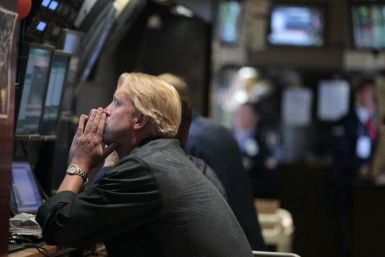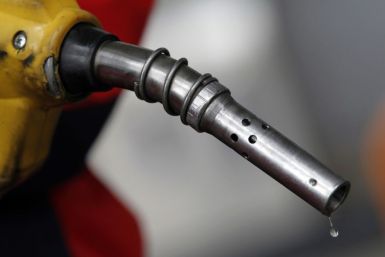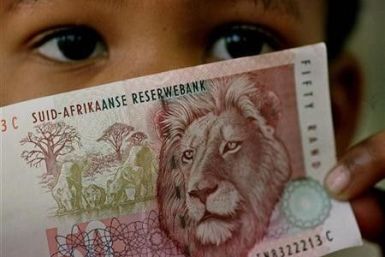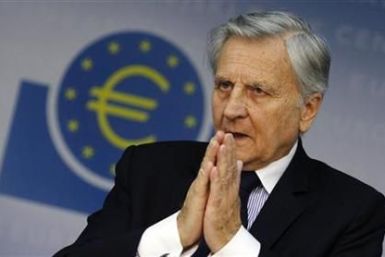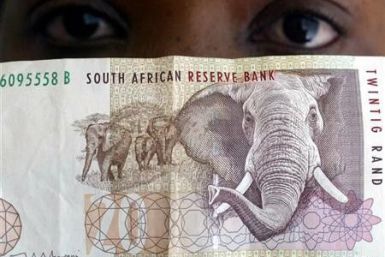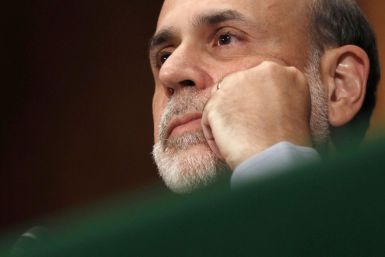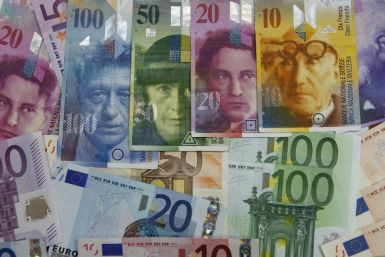Stocks closed out their worst week in more than two years on Friday in a volatile session that saw the major indexes whip back and forth before the S&P 500 ended down less than a point.
The Dow Jones endured several severe ups and downs on Friday after the announcement of a relatively positive jobs and unemployment rate reports.
U.S. stocks rose in volatile trade on Friday as investors saw a buying opportunity following the sharp sell-off that took the S&P 500 down 10 percent over the last 10 sessions.
U.S. stocks rebounded Friday afternoon on news that the European Central Bank is ready to provide support to Italian and Spanish bonds if those countries commit to specific reforms.
World stocks sank for an eighth straight session of losses on Friday, with investors racked by worries about the slowing global economy and the dangerous spread of euro zone debt anguish into Italy and Spain.
Oil tumbled as much as 6 percent on Thursday, with U.S. crude crashing through technical support to its lowest since February as mounting fears of a stalled economy set off a global race from riskier assets.
South African government bonds extended a recent rally on Thursday, gaining sharply on the back of worries about the global economy that saw investors running to safer assets.
Investors fled Wall Street in the worst stock-market selloff since the middle of the financial crisis in early 2009 in what has turned into a full-fledged correction.The Dow and the S&P tumbled more than 4 percent on Thursday and the Nasdaq lost 5 percent on fear the United States is staring at another recession and that Europe's sovereign debt crisis is swallowing two of its largest economies.
The two large banks decided to keep interests rates steady.
Euro zone sovereign bond markets steadied on Thursday ahead of a crucial European Central Bank policy-setting meeting that investors hope will signal a more aggressive approach to fighting the currency area's debt crisis.
The world's economy moved closer to stagnation last month as firms in Asia and Europe reined back in the face of an ongoing debt crisis and signs of a new U.S. slowdown, business surveys showed on Wednesday.
The Swiss National Bank cut its interest rate target band on Wednesday in a surprise move to stem the rapid rise of the Swiss franc, which investors have flocked to seeking harbor from the European and U.S. debt crises.
European Council President Herman Van Rompuy may get an enlarged role as coordinator and spokesman for the euro in an effort to impose greater policy discipline in the single currency area, EU sources say.
South African government bonds rose on Tuesday, boosted by an auction which saw the strongest demand in a year with foreign buying a key feature.
Christine Lagarde, managing director of the International Monetary Fund, said the dollar may weaken if the U.S. Congress fails to raise the U.S. debt ceiling.
Assuming President Barack Obama and Congressional Republicans can not resolve the debt deal dispute in eight days, the unfathomable will happen -- a default by the U.S. Government. But that begs the question: what will the U.S. Federal Reserve do, if the U.S. Government defaults?
The dollar slumped to a record low against the Swiss franc and a four-month trough versus the yen on Monday, with more losses seen if U.S. lawmakers fail to compromise on a deficit reduction plan.
American consumers, faced with grim job prospects and the looming threat of a national debt default, are in no position to support the global economy with a new wave of spending.
The Euro zone countries have agreed to provide Greece with a second bailout valued at 135-billion euros (about $194-billion) over the next thirty years.
Nearly every developed region around the world is suffering from the same fiscal imbalances as Greece
Fears are spiraling that Italy may need a bailout as the yield on the country’s government bonds have surged to 5.4 percent.
Greece, tiny Mediterranean nation plagued by debt problems, still bears watching by U.S. investors/readers. The reason? Bond vigilantes who have driven up Greece's interest rates could do the same in the United States, if Washington doesn't eliminate its budget deficit.










